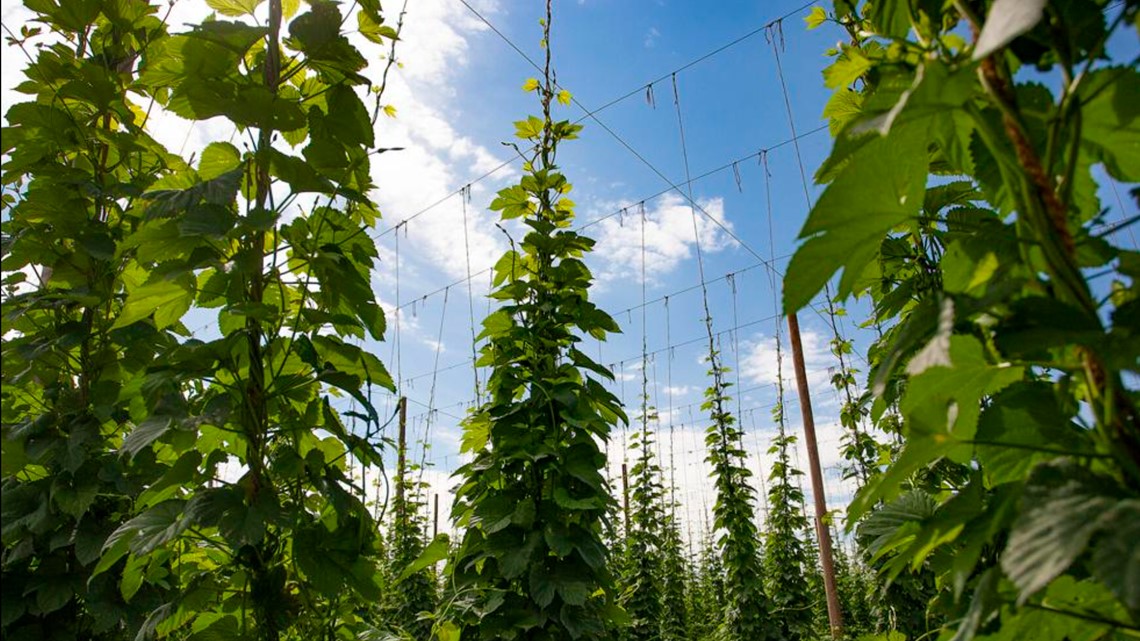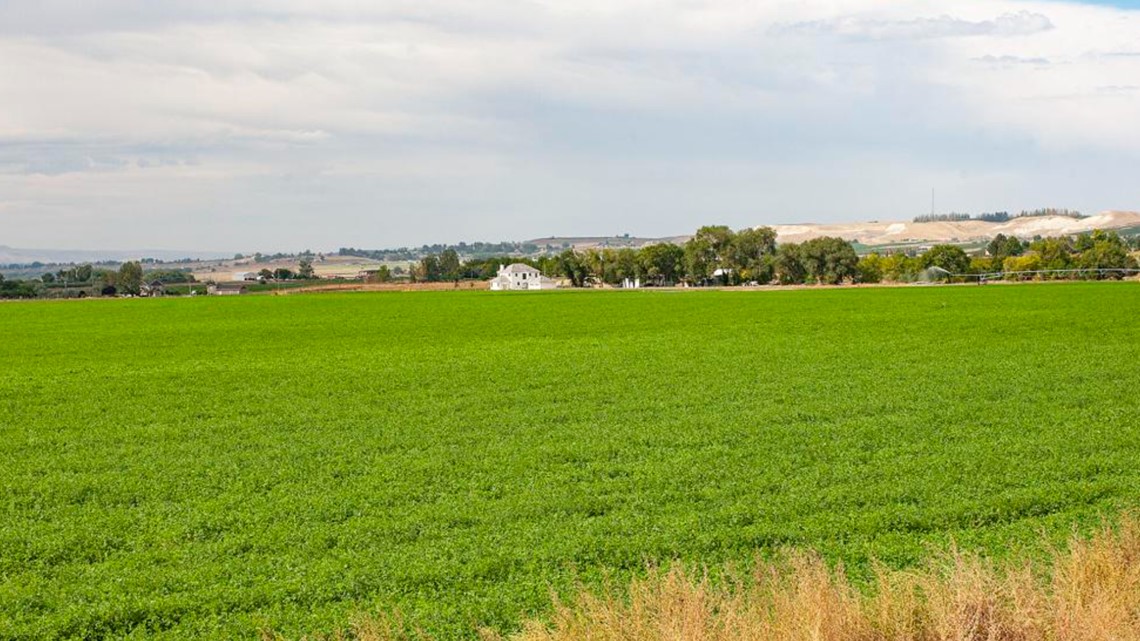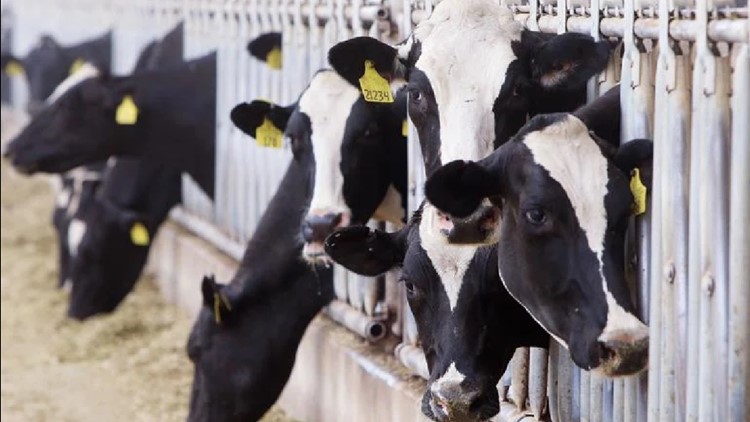BOISE, Idaho — This article originally appeared in the Idaho Press.
Idaho’s agricultural export value is already well ahead of last year’s record-setting pace.
U.S. Census Bureau data from the first quarter shows the total value of agricultural exports from the state increased by 26% in the first quarter of 2023 compared to the same time period in 2022. Idaho set records for agricultural export values the past two years.
“Our agricultural industry has been doing a good job of maintaining markets and expanding markets,” said Sean Ellis of the Idaho Farm Bureau Federation.
Those who are less familiar with Idaho’s agricultural markets might assume potatoes are the state’s top export. However, dairy products are by far generating the highest value from exports abroad.
“Dairy has been our largest ag export sector for a number of years,” said Laura Johnson, a spokesperson and bureau chief at Idaho State Department of Agriculture.
The value of Idaho’s dairy export revenue increased 26% in the first quarter over the same period of time last year, the Census data shows.
The U.S. Census data doesn’t include Idaho products that are exported from out of state — such as Idaho products shipped abroad from Portland —so it doesn’t capture all of the state’s value, but the trends still hold true, Ellis said. The U.S. Department of Agriculture data does capture all of this information, but the numbers for 2022 won’t be released until the fall, he said.
Many might not associate the state with dairy production because most of Idaho’s products aren’t necessarily sold in grocery stores or in liquid milk form.
“We have large processors here that are multinational,” Johnson said.
Idaho’s dairy producers might sell 600-pound barrel cheese to a McDonald’s or another fast food restaurant. Many Idaho producers also sell the products such as milk powder or whey protein, which don’t necessarily get marketed in retail stores.
The state has such a high dairy production and such a low population, that nearly all products made here are shipped out-of-state, said Rick Naerebout, CEO of the Idaho Dairymen’s Association.


“We’ve fully satisfied our domestic market for a lot of years, so as our industry grows, the opportunity for growth is in the export market,” Naerebout said.
Price increase contributed to the past couple years of record-setting export values, Ellis said. However, although the value continued to increase in the first part of 2023, prices had dropped during that time, he said.
“This year’s increase through the first quarter is mostly due to volume for dairy,” Ellis said. “... that bodes well for the dairy industry, which is suffering some pretty low prices right now.”
Naereabout said the dairy industry expects to see a continued increase in total volume but decrease in total value because prices are decreasing.
Most of the state’s agricultural exports went to Canada and Mexico, respectively. China is the third-ranked destination.
Agriculture commodities going to Canada totaled more than $98 million in the first quarter. Last year, this total was around $92.1 million for the same period of time.
The top commodity sold to Canada was live cattle, which represented nearly all of Idaho’s total live cattle exports.
Johnson said part of this is because of supply chain connections with Idaho’s neighbor to the north. In many cases, animals are sent to feedlots in Canada and then come back to the U.S. for processing.
The top export going to Mexico was malt.
Idaho has the largest concentration of malt processing capacity in the world, Johnson said. Much of Idaho’s processed malt goes to Mexico, she said.
Idaho’s famous potatoes are primarily exported in the form of frozen french fries, she said.


Frozen processed potatoes were the third-highest agricultural export commodity. During the pandemic, demand for french fries slowed as restaurants closed or limited service and fewer people were traveling and eating out, Johnson said. These sales have largely rebounded.
Idaho’s export value has continued to grow despite ongoing supply chain disruptions, including availability of shipping containers. Supply has recovered this year from weather-related challenges last year and as pandemic restrictions have eased, demand is also recovering, Johnson said.
However, export value and commodity price increases haven’t necessarily meant farmers and producers in Idaho are receiving huge profits. Supply and operation costs have also been skyrocketing, Ellis said.
“Virtually every cost category in U.S. farming last year went up and went up very significantly,” he said.
Many of these expenses have leveled off but aren’t all going down, although commodity prices are starting to decline.
“It’s not all rosy on the farm in Idaho,” Ellis said.
Naereabout said many dairy producers now are losing money and are borrowing against their equity to weather the storm. He said he expects prices to stay lower through the third quarter but to recover in the fourth quarter.
As with the dairy industry, the main area where expansion can occur for Idaho agricultural products is outside of the country, Johnson said.
“We have a pretty mature domestic market,” she said. “For a lot of sales growth in our ag sector, it is really critical to be looking internationally, where you have populations rising faster, you have middle class populations expanding and that’s where so much of the growth is.”
It’s particularly important that the export market stays strong, because nearly all the food produced in Idaho goes out of the state, Ellis said.
“It’s going to be a tougher year this year for sure for Idaho and U.S. farmers than it was last year financially,” Ellis said. “They’re going to be squeezed this year pretty significantly, and that’s why ... maintaining those (export) markets and increasing them is a good sign.”
This article originally appeared in the Idaho Press, read more on IdahoPress.com.
Watch more Local News:
See the latest news from around the Treasure Valley and the Gem State in our YouTube playlist:



